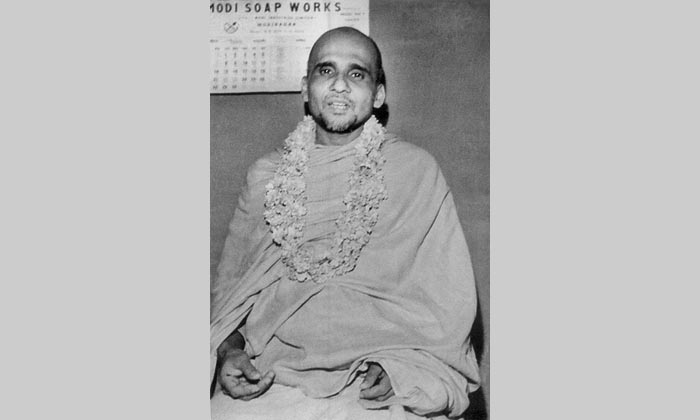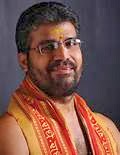Spiritual Import of Religious Festivals : 10-8.
Chapter 10: The Esoteric Significance of the Devi Mahatmya -8.
( A talk given on the 13th of October, 1972, during the Navaratri worship.)
By Swami Krishnananda
Their very essence has to be sucked, because a desire is not an outward form or an action; it is a tendency within.
You may do nothing, and yet you will have desires, because desire is not necessarily an activity.
A desireful person need not be very active.
He can be sitting quiet, doing nothing, saying nothing, and yet be full of desires because it is a tendency of the mind, an inclination of consciousness, that we call a desire.
That can be inside, even if there is outwardly nothing.
This is the Vikshepa Sakti – distraction, tossing and the chameleon-attitude of desire – which attacks us, when, with herculean efforts, we try to destroy or gain control over Kama and Krodha, Madhu and Kaitabha.
After Madhu and Kaitabha, we get Mahishasura and Raktabija.
Thus Mala and Vikshepa are the primary oppositions in our spiritual pursuit.
Ancient masters have told us that while Mala or dirt of the psychological structure can be removed by Karma Yoga, by unselfish and dedicated service, Vikshepa or distraction of the mind can be removed only by worship of God, by Upasana. While Karma removes Mala, Upasana removes Vikshepa.
But even now, we are not fully safe.
While Mala might have gone and Vikshepa is not there, we may have a third trouble, namely, a complete oblivion of consciousness.
We will have no knowledge of anything as to what is happening.
Swami Krishnananda
To be continued ...





Comments